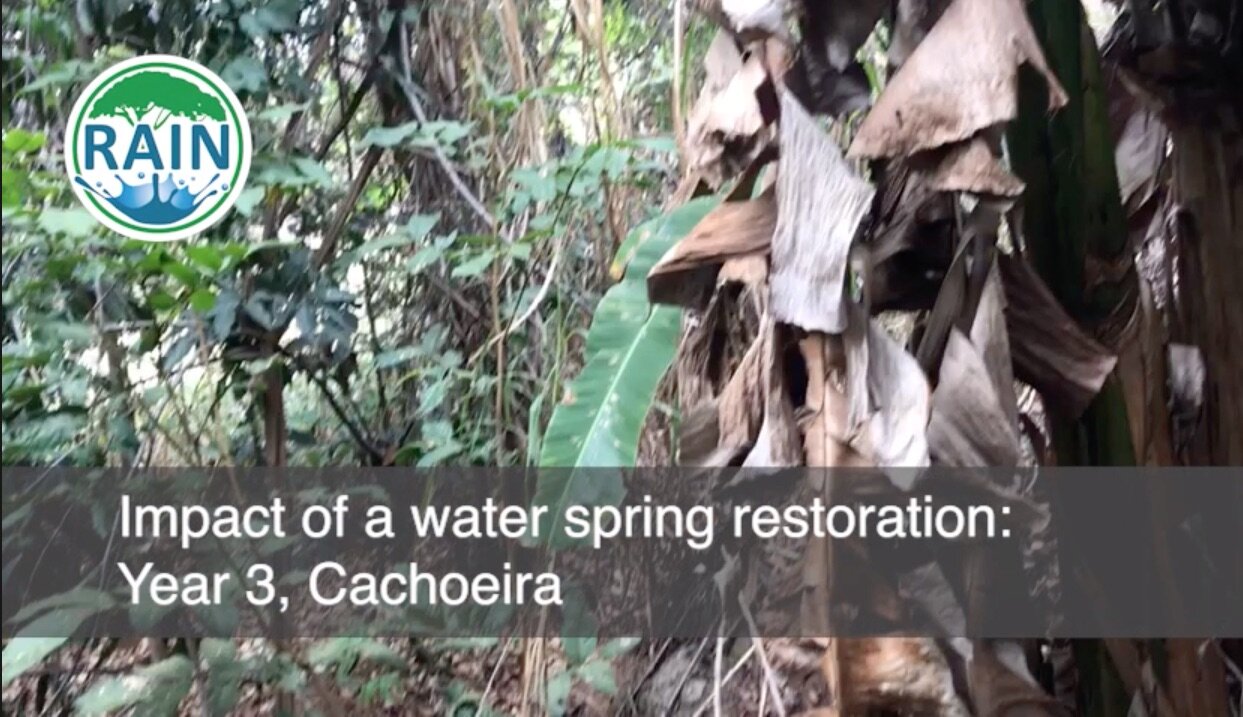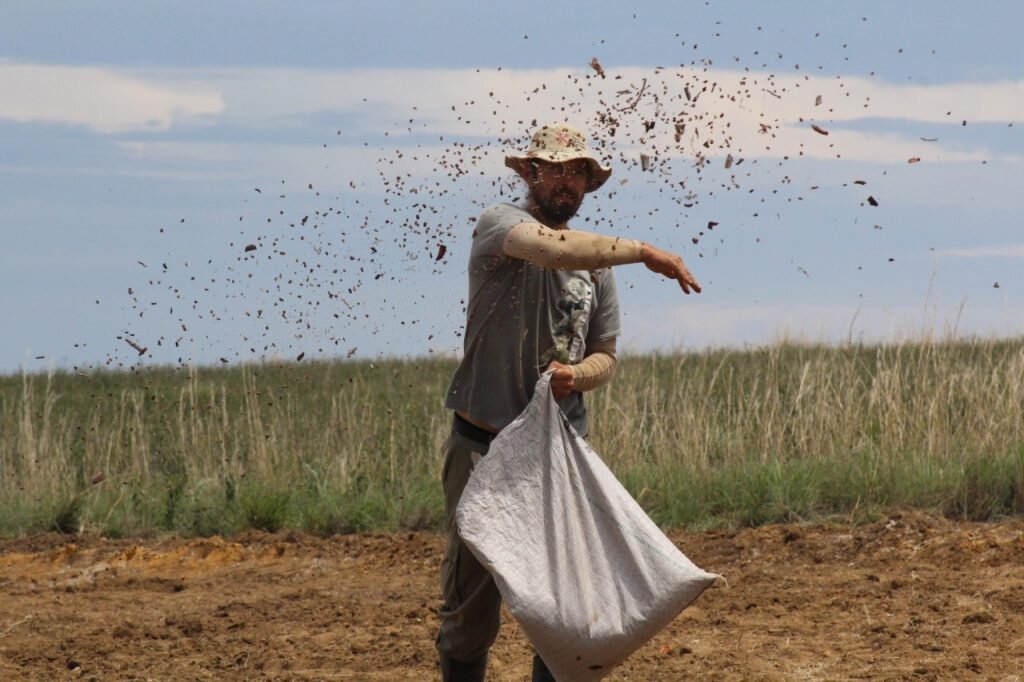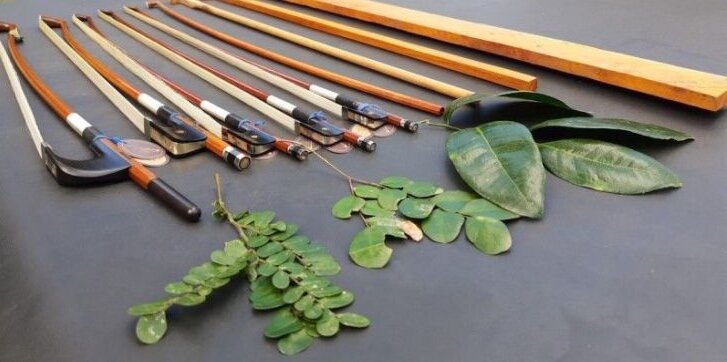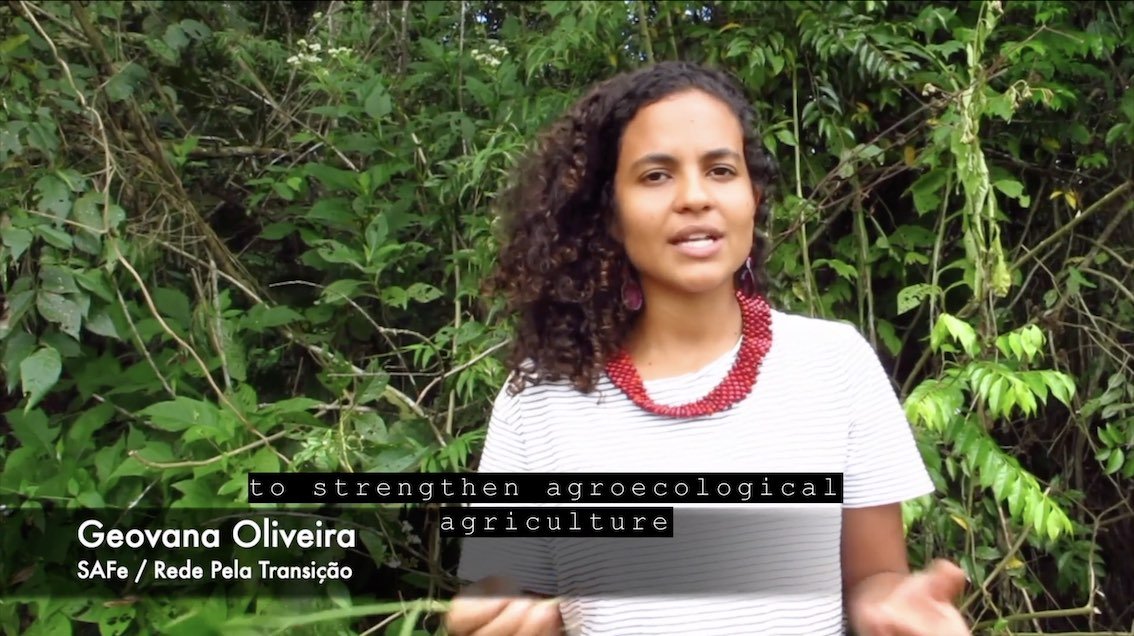
STORIES
News from RAIN.
Indigenous and classical Music together - with Miriam Margolyes
British actor Miriam Margolyes has joined an Indigenous leader and two London orchestras to bring out a stirring new video of a traditional Indigenous song.
Indigenous youth making media!
Our friends from the Terena nation have stories to tell - watch the video of them introducing their collective!
Celebrating victory on Indigenous Peoples’ Day
After three generations of struggle, a patch of Kaingang Indigenous territory is returned to the tribe
Impacts of spring restoration
After three years, our partner Wender revisits the springs he restored to see the impacts of our collaboration.
Urban agroecology video - making natural fertilizer
Women from the favela food security project in a favela of Recife learn how to use food waste and some old buckets to make fertiliser.
What is direct seeding? (video)
Toninho is coordinating our four hectare direct seeding pilot project. Next year we plan to replicate it in four other states.
In these videos he describes the biome, the technique and the community where the project is being undertaken.
Direct seeding pilot launched!
RAIN has been working with Brazilian ecologists to develop and implement a revolutionary method of recovering the Cerrado. It is called direct seeding, and is a way of ‘fast forwarding’ the natural regeneration process.
Indigenous music for World Rainforest Day
Metsre Poa, leader of the Indigenous Noke Koi nation, presents a song of the history of his tribe.
Celebrating a broad umbrella for #Earthday21
Classic FM features Trees of Music
The UK’s most popular classical music station shared the Chiquinha Gonzaga arrangement for strings in support of the pernambuco tree and its ecosystem.
Trees of Music: Orchestrating change for the pernambuco tree
With the support of the global classical music community, master bow-maker and ecologist Marco Raposo is growing 50,000 saplings to distribute to small-scale farmers, in order to preserve the future of classical music and regenerate the Atlantic Forest.
Urban agroecology into nine communities
Our partners in northeast Brazil ran a fundraising campaign to expand their work from one favela into nine. Not only did they meet their target - they smashed it!
Network for Agroecological Transition
RAIN began as a thought on the banks of a dried-up stream in Minas Gerais, and took form over lunch with our bold and bearded friend Márcio.
Márcio phoned Mariana in Recife, Mariana talked to Ravi, and together with a team of students they built a geodesic agroforestry nursery at Professor Cândido Duarte Middle School. Amrou in London loved the idea, and he put up the funds.
The Power of a Network
Mariana set up a centre demonstrating the techniques with a black women’s group from the community of Passarinho. It works. People who were hungry have grown their own food, and medicine as well.
A Decade of Ecosystem Restoration
The United Nations decade of ecological restoration has just begun! This is timely, given the publication of the IPBES report in 2019 which found that ecological degradation and rates of species extinctions are accelerating all over the world.
One of the most powerful means of reversing the trend is ecosystem restoration
TEACH THE FUTURE- Climate Crisis Education
How do educators and young people respond to the storm of changes brought about by climate change and the pandemic? How do we connect, as individuals and citizens, with a future that seems terribly uncertain?
One exceptional organisation has been asking these questions and taking action.
Artists reforesting Brazil
A group of artists have kindly donated artworks to raise money for reforestation initiatives in Brazil. In just a few weeks we have raised over £2000!
All our projects are community-led and support biodiversity, soil health and food security - helping all of the creatures on the land, from the microbiota in the soil to the humans treading carefully upon it.
Trees of music
As musicians have known for centuries, the best wood for violin bows comes from the pau-brasil tree, the tree that Brazil is named after. It has the perfect strength, flexibility and resonance, and nothing else sounds quite right.
But the trees are endangered following centuries of deforestation.
World Soil Day 2020 - 4p1000
RAIN has recently connected with the “4 PER 1000 initiative”. The aim of the initiative is to demonstrate that agriculture, and in particular agricultural soils can play a crucial role where food security and climate change are concerned. It acknowledges that an annual growth rate of 0.4% in the soil carbon stocks, or 4% per year, in the 30-40 cm top layer of soil, would significantly reduce the CO2 concentration in the atmosphere related to human activities.
Rede pela Transição - An announcement from partners in the Brazilian northeast
Our friends have launched a platform detailing regenerative work and food security with poor urban communities.
In their words…
We would like to present the Rede pela Transição platform, which supports learning journeys focused on ecological education.
Growing with Pioneers: Seeds in the soil
The RAIN Pioneers Project encourages schools and communities to plant and maintain their own reforestation, rewilding or ecosystem restoration project.




















